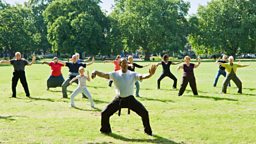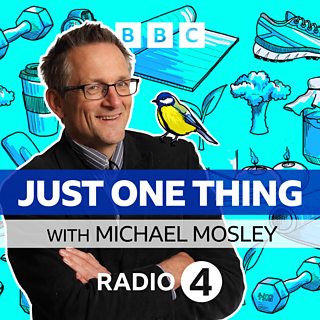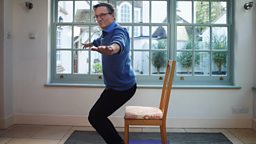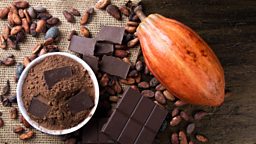The surprising health benefits of Tai Chi
Tai Chi is an ancient Chinese martial art, sometimes called “shadow boxing” or “meditation in motion”. It’s a series of different postures that flow into each other in slow movements. But, although it looks gentle, studies suggest it is as effective as conventional exercise for reducing body weight and visceral fat.
And because Tai Chi is a mix of exercise and meditation, your brain gets a work out too – leading to better brain function. It improves heart health, and has even been shown to boost your immune system.
In Just One Thing, Michael Mosley explores how – if you’re looking to add more exercise into your lifestyle – Tai Chi could be the option with surprising benefits.

Tai Chi could lengthen your life
The ancient practice of Tai Chi is particularly popular in Hong Kong, where residents have one of the highest life expectancies in the world. Is this connected? Quite possibly. Those who practise Tai Chi regularly live significantly longer than those who don’t, according to a 2022 Shanghai study which followed 60,000 men for five years.
Tai Chi has been found to improve brain function faster than other exercise.
It’s healthy for your heart
Tai Chi is said to be good for heart health. In a recent study, comparing Tai Chi to brisk walking, the martial art was found to be significantly better at reducing blood pressure and other risk factors for heart disease, like blood sugar levels and cholesterol.
It can boost your immunity
Tai Chi could also benefit your immune system. In a Californian study where half the participants were told to take Tai Chi classes, half took health education classes, and everyone received a shingles vaccine, it was the Tai Chi trainees whose immunity was measuring twice as high as those in the other group nine weeks later.
(The Tai Chi group also showed greater improvements in physical functioning, vitality, mental health and reductions in bodily pain.)
Tai Chi improves brain function – fast
Tai Chi has been found to improve brain function (like memory and mental flexibility) faster than other exercise.
Dr. Parco Siu from the University of Hong Kong has been studying the health benefits of the martial art for over a decade. He ran a study where they compared practising Tai Chi for three hours a week with conventional aerobic exercise and muscle strengthening activities “for improving cognitive function in older adults with mild cognitive impairment.”
They found improvements in brain function across the board, but for those practising Tai Chi it came a lot sooner: “We found that Tai Chi actually can induce greater and earlier improvements on global cognitive function and cognitive flexibility.”

The surprising benefits of Tai Chi
Dr Michael Mosley explains why the mix of exercise and meditation is good for you.
It actually changes your brain
“It seems to train up your brain as well,” says Dr Siu. “There has been evidence from brain imaging studies that suggests that your brain would adapt at both the structural and functional levels… Conventional exercise can change the brain a little bit but not to the extent of what we observe from Tai Chi training.”

Someone practising Tai Chi burns a similar number of calories to someone who appears to be working out a lot harder.
He believes the meditation element is to thank. “You may want to incorporate the meditations during the Tai Chi movement in order to acquire the most benefit from Tai Chi,” suggests the expert.
It burns the same number of calories as conventional exercise
It looks like very gentle, slow, smooth movement, says Dr Siu. Barely exercise at all. But someone practising Tai Chi burns a similar number of calories to someone who appears to be working out a lot harder: “The participant practising Tai Chi – they burn similar calories compared to conventional exercise in our research setting.”
Tai Chi can help you lose fat as quickly as the gym
Another study had surprising findings when it came to Tai Chi and weight loss.
Tai Chi is “about as effective as conventional exercise”, including aerobic and muscle-strengthening activities, “for reducing our waist circumference in the individual with central obesity,” says Dr Siu. (Central obesity is a sign of visceral, internal fat surrounding our organs.)
This is great news, he says, for those who don’t enjoy conventional exercise or who have limited mobility. “Now they can have another option that can allow them to manage the condition of central obesity.”
Getting started
Dr Siu’s top tip is to join a Tai Chi class supervised by a qualified instructor, because of the meditation component: “The bodily movement is not hard to pick up in front of the online video; the difficult part will be the meditation part.” Someone personally guiding you will enable you to grasp the “moving meditation” skills more quickly, he suggests.
But for those who can’t join a class in person, an online video will still allow you to pick up the “fundamental moves” and get started. There’s an easy video on the Βι¶ΉΤΌΕΔ website; you’ll also find some on the .
Tai Chi is a doddle to do at home – and you don’t even need to get changed. Give it a go and your immune system, your heart and your brain could all benefit.

















































